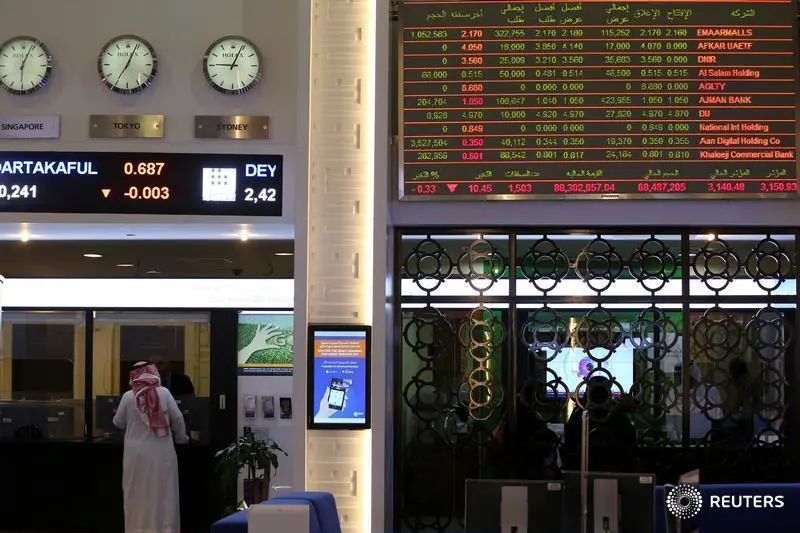PHOTO
Renowned emerging markets fund manager Mark Mobius has said that the Gulf region needs both better governance and more sizeable initial public offerings (IPOs) if it is to attractive more investment flows from active money managers into regional markets.
Speaking to Zawya on the sidelines of the Alternative Investment Meeting Summit in Dubai on Monday, Mobius, who left his role as executive chairman of Franklin Templeton late last year to set up Mobius Capital Partners in January, said that for emerging market investors, "the GCC is small".
"They've got to get bigger," he said. "They've got to get more listings, and they've got to (make) big improvements in governance."
For instance, although there may be up to $45 billion earmarked in passive emerging market flows into Saudi Arabian stocks next year, Mobius has said that he has no plans for its active managers to make investments into the kingdom, especially in light of the recent killing of journalist Jamal Khashoggi within the Saudi Arabian consulate in Istanbul.
"My feeling is it's a very bad situation," he said. "So I've told my guys to stay away. It's too dangerous. We don't know what's going to happen next."
However, speaking at the same event on Monday, the head of asset management at Dalma Capital Management, Majed Kabbara, said that he did not believe that there would be a significant impact on business interests in the kingdom as a result of Khashoggi’s death.
Mobius said that governance forms a key emphasis in his new firm's investment strategy.
"We want to get good companies that are interested in improving their governance and in the GCC generally there is a need for improved governance - and more listings across the board," he said.
Transparent talk
"We want to find companies that are willing at least to have a dialogue (on governance). What we're saying to companies is it's in both our interests - you're improving your stock price if you improve governance and we benefit as shareholders."
He said that a lack of governance isn't just a problem in the Middle East, but in emerging markets around the world. However, the greater depth of capital markets in places like India and China means that it is easier to identify targets with suitable governance structures in these markets.
Gulf markets could be boosted by the public listing of more state-owned enterprises, he argued. Although he said that leaderships may be wary about making some information public, examples from Singapore - and increasingly from state-owned assets floated in China – show that both government and private shareholders benefit through improved discipline and better returns.
Mobius Capital Partners was set up by its eponymous founder and two former Franklin Templeton colleagues in January this year. It has raised £100 million ($128.1 million) through a new investment trust that was floated on the London Stock Exchange in September, and it launched a Luxembourg-based, open-ended fund in June with an eventual target size of $1 billion. The firm currently employs nine staff at its London headquarters.
Initially, a fundraising of £200 million was proposed for the London-based trust, but the underperformance of emerging market equities this year - the MSCI EM Index was down 15.1 percent in the year to October 31 - has made the environment for raising funds difficult, Mobius admitted.
On the flip side, he said "it's a wonderful time to be investing because everything is so cheap!"
Mobius understandably remains bullish on emerging markets. In a later presentation at the summit, he said that emerging markets were growing much more quickly and had younger populations than developed markets.
Stronger growth
"Emerging markets this year are growing at 4.7 percent, compared to 2.4 (percent) for developed countries," he said, adding that the median age for emerging and frontier market populations was 31, compared to 42 for developed markets. Emerging market stocks also offer better value, he argued, trading at a lower price-to-earnings ratio (11.9x) than developed market stocks (16.4x).
He also said that despite the generally greater volatility, an investment made in emerging market equities in 1998 would have provided a return of 444 percent on the original investment, compared with 170 percent in developed market stocks.
Speaking on a subsequent panel on alternative investments, Ashish Marwah, chief investment officer said that while there is plenty of demand for investments that meet minimum environmental, social and governance (ESG) standards, "the question I always ask is whether the returns are there for investors".
"It's not there yet. I believe there are returns in the future, but it requires much more co-ordination not just from investors but also public policy and government to be able to provide the background and support from the other side so the efforts that investors are making are not wasted," he said.
A paper published by analysts from Renaissance Capital last month looking at the ESG scores of 167 countries for which data was available found a “very strong correlation between ESG scores and wealth”, with developed nations generally having the highest ESG scores. However, it said there was “zero correlation” between a country’s ESG scores and its sovereign bond pricing, and very little correlation between ESG scores and equity market performance.
“Indeed, the best-performing DMs (developed markets) and EMs (emerging markets) in 2018 have the worst ESG scores,” it said. “That may, however, change as more money is allocated to ESG-compliant funds.”
(Reporting by Michael Fahy; Editing by Shane McGinley)
Our Standards: The Thomson Reuters Trust Principles
Disclaimer: This article is provided for informational purposes only. The content does not provide tax, legal or investment advice or opinion regarding the suitability, value or profitability of any particular security, portfolio or investment strategy. Read our full disclaimer policy here.
© ZAWYA 2018




















